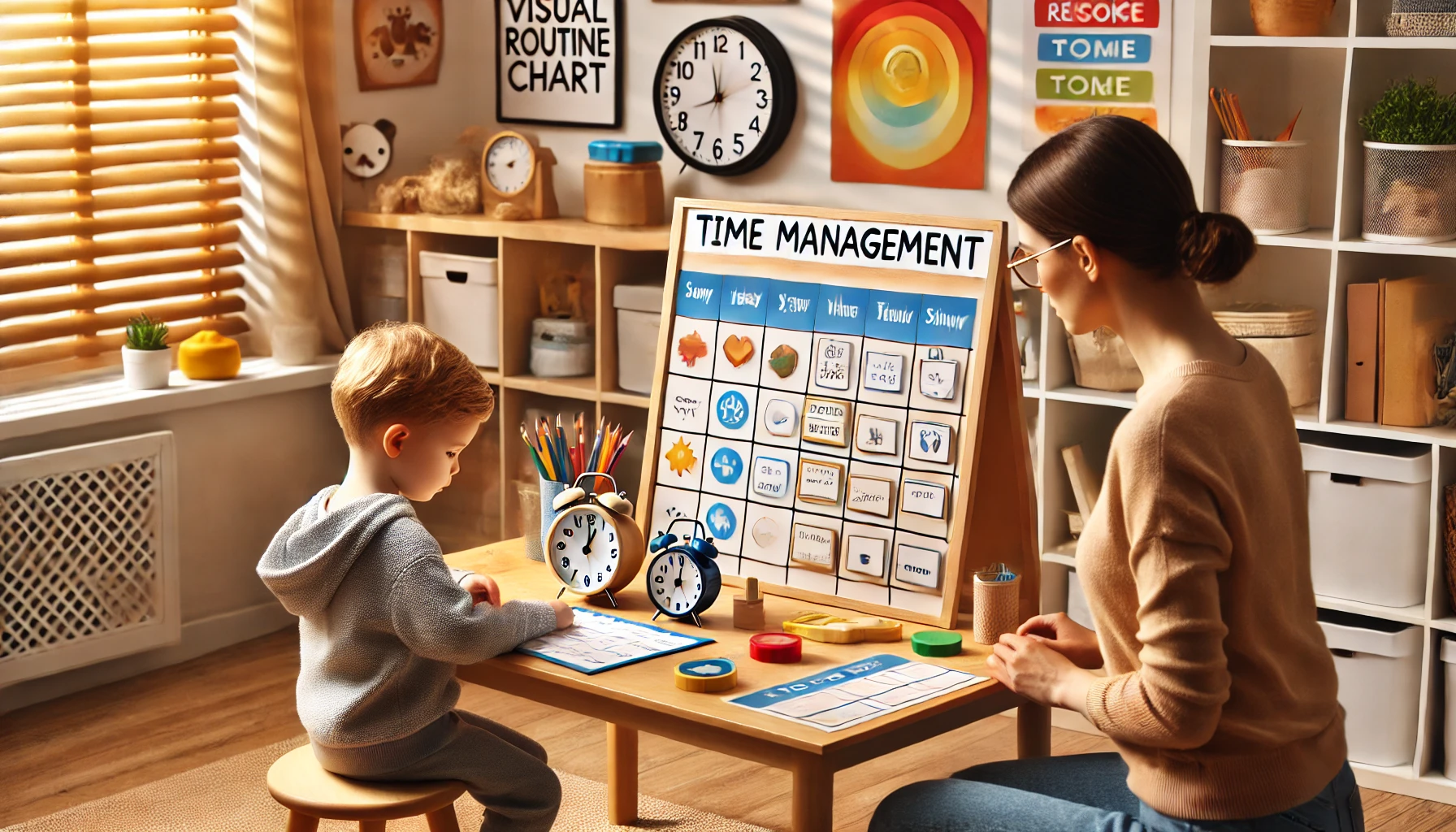How to Teach Young Children About Time Management in Daily Life
Time management is an important life skill that helps children develop organization, responsibility, and the ability to complete tasks efficiently. Teaching young children how to manage their time through routines, visual schedules, and fun activities prepares them for success in school and daily life. Parents can support time management skills by modeling good habits and encouraging structured yet flexible routines. In this article, we’ll explore practical ways to help young children learn about time management.
Why Teaching Time Management is Important
- Encourages responsibility – Helps children understand the importance of completing tasks on time.
- Reduces stress and frustration – Creates a sense of predictability and control.
- Develops self-discipline – Teaches children to balance work and play.
- Improves focus and organization – Helps children stay on track with tasks.
- Prepares for school and future success – Builds foundational skills for academic and personal growth.
1. Establish a Daily Routine
A structured routine helps children understand what to expect and manage their time effectively.
Activity Idea:
- Create a morning and bedtime schedule with simple steps like brushing teeth, getting dressed, and reading a book.
- Use a visual routine chart with pictures for younger children.
- Keep routines consistent but allow some flexibility for fun activities.
What Kids Learn:
- The importance of structure in daily life
- How to follow a schedule independently
- How routines make transitions easier
2. Use Timers to Make Time Visible
Helping children see time passing makes it easier to understand and manage.
Activity Idea:
- Use a kitchen timer or hourglass to set limits for playtime, screen time, or cleanup.
- Try a countdown method: “We have 10 minutes left to get ready—let’s race to finish!”
- Use musical cues (e.g., a cleanup song) to signal transitions between activities.
What Kids Learn:
- That time is measurable and limited
- How to manage tasks within a time frame
- The importance of staying focused on a task
3. Teach the Concept of Prioritizing Tasks
Helping children understand what needs to be done first improves decision-making.
Activity Idea:
- Create a to-do list with “Must Do” (e.g., brushing teeth) and “Can Do Later” (e.g., playing).
- Use colored stickers to mark important tasks vs. fun activities.
- Discuss how finishing responsibilities first leads to more free time for play.
What Kids Learn:
- The difference between essential and optional tasks
- How to make choices based on importance
- That completing tasks efficiently allows for more fun
4. Encourage Time Awareness Through Play
Games and fun activities make time management more engaging.
Activity Idea:
- Play “Beat the Timer” where kids try to finish a task before the timer runs out.
- Use a stopwatch to measure how long different activities take.
- Play board games that require turn-taking and time limits, like “Operation” or “Candy Land.”
What Kids Learn:
- How to estimate time for tasks
- The importance of managing time wisely
- How to balance time between different activities
5. Help Children Plan Ahead
Teaching children to think ahead prevents last-minute stress.
Activity Idea:
- Before bed, ask, “What do we need to do in the morning to get ready on time?”
- Encourage packing school bags or laying out clothes the night before.
- Use a weekly planner to mark important events or activities.
What Kids Learn:
- How to prepare for upcoming tasks
- The benefits of planning in advance
- How organization reduces stress
6. Allow Children to Experience Consequences
Letting children see the results of poor time management teaches valuable lessons.
Activity Idea:
- If they take too long getting dressed, they might have less time to play before school.
- If they delay starting a task, talk about how it made the next activity rushed.
- Guide them with gentle reminders but allow small consequences to reinforce lessons.
What Kids Learn:
- The importance of using time wisely
- That actions have consequences
- How to adjust and improve time management skills
7. Balance Structured Time with Free Time
Giving children a mix of scheduled and unscheduled time helps them learn flexibility.
Activity Idea:
- Set up a “free play” period where kids choose their own activity.
- Balance structured learning time with unstructured creative play.
- Teach that some tasks must be done on time, but there is also time for fun.
What Kids Learn:
- How to balance responsibility and relaxation
- The importance of flexible time management
- That schedules should include both work and play
8. Praise and Reinforce Good Time Management Habits
Encouraging children when they use their time well reinforces positive behavior.
Activity Idea:
- Say, “Great job getting ready so quickly! Now we have extra time to play!”
- Create a sticker chart to reward completing tasks on time.
- Reflect with children: “How did planning ahead help us today?”
What Kids Learn:
- That time management is a valuable skill
- How planning helps create more free time
- That small efforts lead to big rewards
Final Thoughts
Teaching young children about time management helps them develop independence, organization, and responsibility. By establishing routines, making time visible, and reinforcing good habits, parents can guide children in learning how to manage their time effectively for a balanced and productive life.
